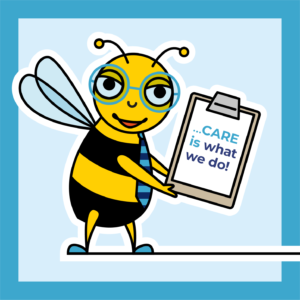Every manager and nominated individual working in social care knows that it is important that staff undertake their mandatory continuing professional development ,CPD, training each year.
 The purpose of CPD training for staff and for managers is to :
The purpose of CPD training for staff and for managers is to :
- Keep staff motivated and interested in their roles.
- To ensure staff stay up-to-date with the latest learning to inform their care giving.
- To ensure the service stays compliant with the training requirement of the regulator, the CQC, for CPD.
Within regulation 18 (Staffing) the CQC, https://www.cqc.org.uk/guidance-providers/regulations/regulation-18-staffing, identify a number of issues pertaining to staff CPD, these include:
CPD is not necessarily all about classroom training or indeed online training as is so often the case with social care training these days. The format that CPD training takes should match the requirements of the training with is being undertaken. For example moving and handling must have a practical element to it and so needs to be done face to face.
Registered managers must also make time for their own personal development in among all the other tasks they have to undertake. This may mean needing to be creative about how you keep yourself up to date and engaged with the work of caring.
Here are some strategies for staying up to date with your own CPD.
 Subscribe to some good journals and online blogs. These come to you and help you focus on what is new and important.
Subscribe to some good journals and online blogs. These come to you and help you focus on what is new and important.- Do some online training in additonal to the mandatory ones each month or two. Some course are free and other are their to help you expand your horizons, perhaps in IT?
- Consider using a university course as part of your CPD. Think about a qualification in something relating to what you do like management – many course will accredit your level 5 qualifications, cutting down the length of time you will need to study.
- Use your CPD to empower yourself, rather than as a stick to beat yourself with. Do some things you are interested in and develop your self as well as your professional self.
- Subscribe to podcasts in the areas you are interested in. Some podcast in social care can be very informative and can be played in the car or on the bus making once dead time part of your useful CPD time.
- Attend webinars in work and outside. Many companies and local authorities and regulators offer insights into their work, offer CPD related learning and new ideas for free!
- Get involve din social media. Following professional accounts mean opinion formers and new ideas come to you. You can stay ahead of trends and ideas by seeing what the people who know have to say about issues in Social care.
- Subscribe to email updates from statutory bodies and industry experts and trade magazines and journals. These give you bite size reading which again keep you up to date with what is new in social care.

CAREis offer online training, https://www.careis.net/features/, which reflects the mandatory needs of social care providers as identified by skills for care, https://www.skillsforcare.org.uk/Developing-your-workforce/Guide-to-developing-your-staff/Core-and-mandatory-training.aspx.
